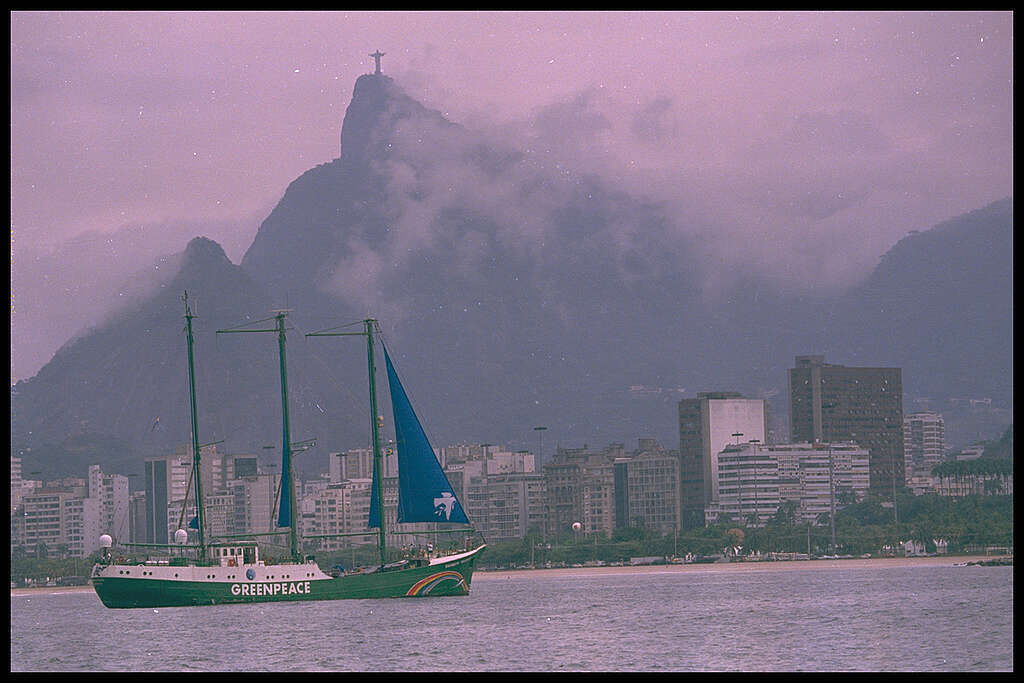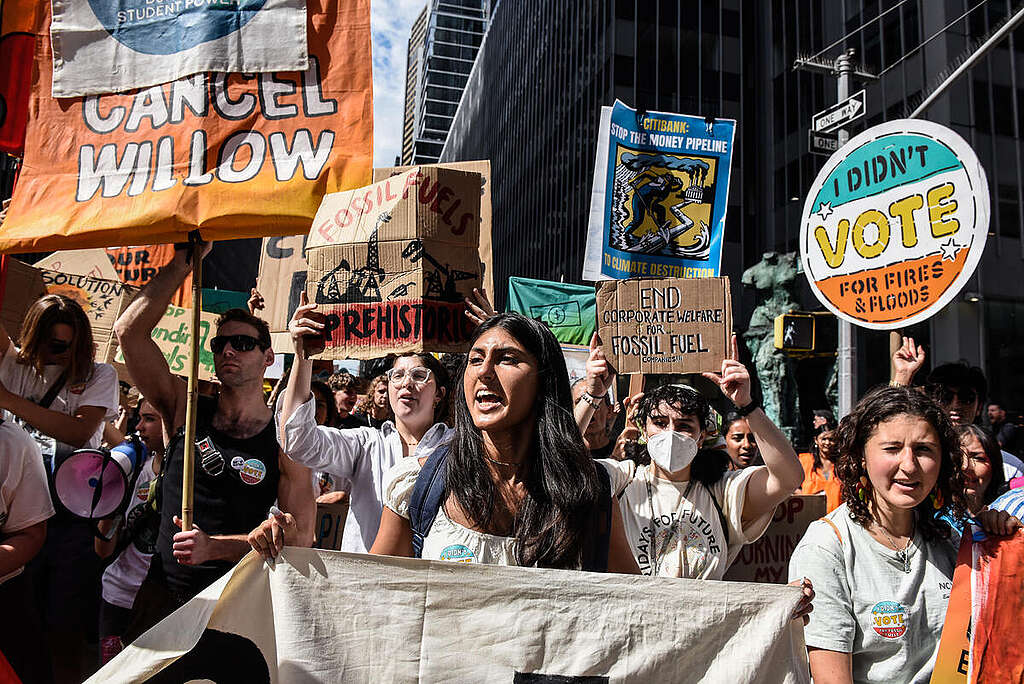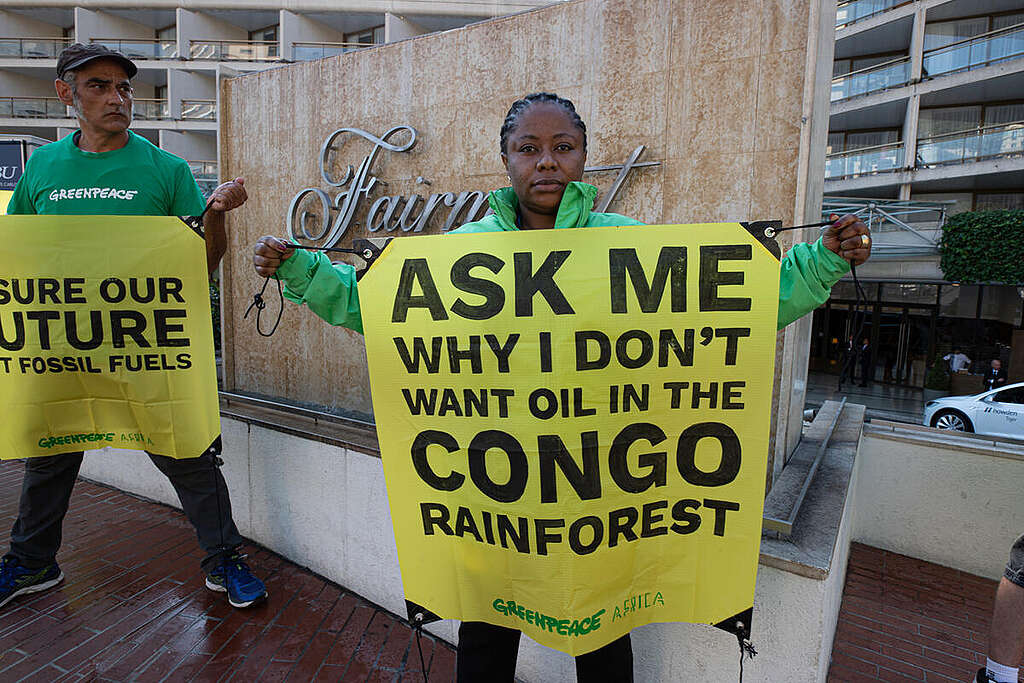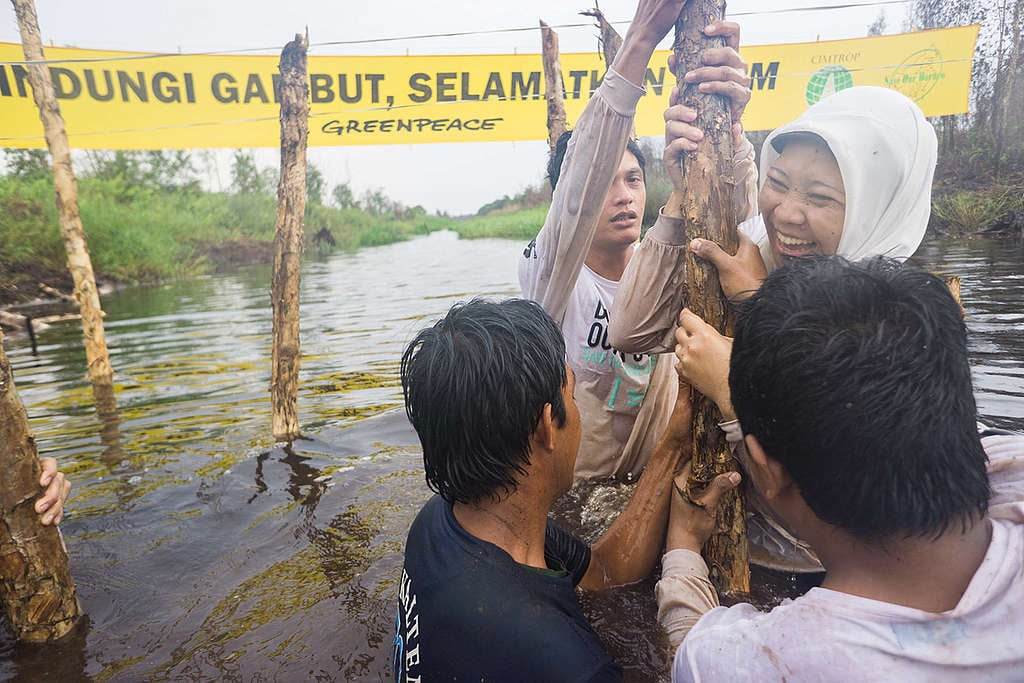I first volunteered for Greenpeace in 1992. A young, frustrated and impatient activist, I was inspired by Greenpeace's ability to speak truth to power. 1992 was also the year that 1,700 scientists, including Nobel laureates, signed the "World Scientists' Warning to Humanity", which detailed deeply disturbing data about the climate and biodiversity.
They urged that "a great change" was necessary to avoid "vast human misery." 1992 was also the year of the Earth Summit, which led to the establishment of several important environmental frameworks including the Paris Agreement and the Kyoto Protocol, while the Greenpeace ship, the Rainbow Warrior, docked in Rio de Janeiro marking the organisation's participation in the Summit.

From then to today, as the new Executive Director of Greenpeace International, I have had to remind myself time and again to be patient, to be persistent, as winning takes time. I would get, and still get, tired of repeating myself about the root causes of the polycrisis, like how we cannot have infinite growth on a planet with finite resources, how so much more is invested in wars than in peace, how a small group of rich people are prioritised over the wellbeing of the masses. But, then I remind myself that we must be courageous and embrace active hope - together we must sail into the gathering storm even when victory is uncertain. Our fate and the future of all living things will be decided by what happens in the maelstrom.
The Ocean Treaty - an agreement to protect 30% of the world's oceans by 2030 - took 20 years of commitment, but we got it. Six months after its agreement, dozens of governments signed the Treaty in New York in September during the UN General Assembly, which I was privileged to witness.

Mainstreaming of the need for radical climate action started 30 years ago and though we are not there yet, we are getting closer each and every day thanks to the tenacity, creativity and courage of millions of people around the world who are part of the growing climate and social justice movement, which understands that we cannot have a green future without peace, and we cannot have peace without justice.
By coming together and acting for the common good, we are charting a new course for humanity that will see us thrive through preserving, protecting and restoring the natural world. By living within planetary boundaries. We need to continuously remind ourselves of the power of being together as an inclusive, empowering and broad movement demanding change. Our collective strength lies in shared values, vision and mission, and our ability to build counter power over those who are blocking and retreating from taking authentic action for a green, peaceful and just future. A future in which no one is left behind.
Decision-makers, especially of the biggest polluting countries, must be compelled to become climate justice leaders by delivering a fast and fair fossil fuel phase out that is funded. The science is clear and political and business leaders know what needs to happen. However, none of the world's largest fossil fuel producers have committed to ending new investments in oil and gas production. They are increasing them.

Five global north countries are responsible for over half of planned expansion from new oil and gas fields: the US, Canada, Australia, Norway, and the United Kingdom. Among developed countries, only minor producers have set end dates for oil and gas production. China is building six times more new coal than the rest of the world combined. In Australia, Queensland alone has 18 coal mine projects in the pipeline.
Our reality is stark, and day after day, we are witnessing the devastating impacts of the climate crisis on people and communities around the world – especially upon those who have done the least to cause it.
Greenpeace must continue to focus on flipping the balance of power away from private profit and power to public and planetary health and wealth. We must continue to build counter power, for as long as it takes. The challenge is enormous but together we are big and we can win.
I am honoured and humbled to take up the challenge of being the International Executive Director of Greenpeace. It is a huge responsibility. My younger self would be freaking out right now. But, I breathe, drawing from lessons of persistence of the past three decades, and I remind myself to be patient and hopeful, as people have extraordinary power when acting together. I joined Greenpeace wanting to change the world. Three decades later, alongside all of you, I am still that activist.
We act with hope and determination. We take on the impossible. We are everyday people connected around the world, embarking on a billion acts of courage.







